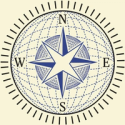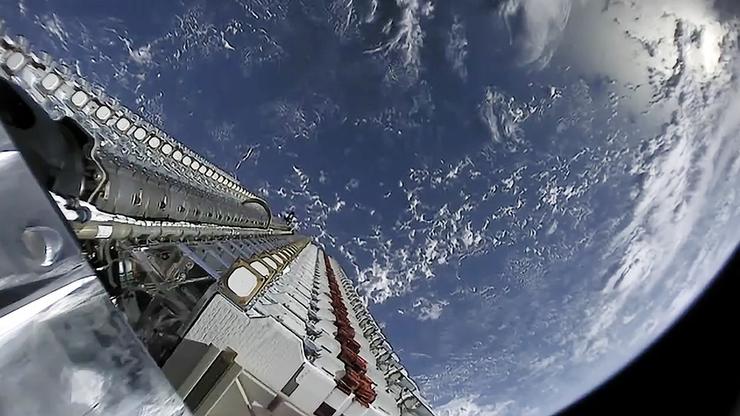The News
LAGOS — At the end of April, Starlink, the satellite broadband service owned by South African-born tech billionaire Elon Musk, disconnected its service in Cameroon following a government order. The regulator said Starlink was operating without a license and posed a threat to national security and fair competition.
The move was quickly criticized by local tech watchers as anti-competitive. Douala-based industry veteran Rebecca Enonchong argued that the government was out to protect the state telecom monopoly Camtel.
She said Camtel has “impeded” the progress of the industry by purchasing too little capacity from undersea cables and reselling at exorbitant prices to other telcos. “They want to continue to have full control over the internet and disconnect at will,” Enonchong said.
Starlink, a unit of Musk’s aerospace company SpaceX, has faced numerous regulatory obstacles in Africa. The company has been blocked from approval in seven countries, including Côte d’Ivoire, Burkina Faso, DR Congo, South Africa, and Senegal. But some bans have been reversed — particularly after the company got in touch with top government officials.
Know More
With more than half of Africa’s population living in rural regions, there might have been an expectation that satellite broadband would be attractive to governments trying to connect all their citizens. But Musk hasn’t shown much inclination to work directly with African governments, including in his country of birth.
In South Africa, Starlink still needs to meet a licensing requirement that mandates a 30% ownership of a telecom company from historically disadvantaged groups. This has prompted the communications regulator, Independent Communications Authority of South Africa (ICASA), to ban Starlink services, pending it satisfying licensing requirements. But the service has remained online, despite Starlink warning that it would cut off the “illegal” roaming services by May 1.
Regulators across the continent are worried about Starlink because they want control over the content being shared, industry analysts say. This has been a recurring theme of concern for African governments since the rise of the internet and, in particular, social media.
Starlink’s satellites have no physical infrastructure or official presence in the countries, meaning it isn’t possible to turn off the internet. Similarly, Starlink can’t be held responsible by governments for content transmitted over the signals.
Officials are also concerned about the company reaching their citizens without paying taxes or regulatory fees. Indeed this has prompted criticism outside Africa as well. Steve Song, a policy advisor at the Mozilla Foundation and internet access advocate, believes that Starlink satellites are “economically lopsided, extracting value without contributing to local economies.”
With the right incentives, African governments are granting approvals. President Emmerson Mnangagwa of Zimbabwe granted Starlink a license after it agreed to an exclusive partnership with a telco owned by his controversial friend Wicknell Chivayo. In Kenya, a 30% local ownership requirement for telcos was waived after reaching a deal with President William Ruto to boost high-speed internet in the country.
Veteran Zimbabwean journalist Tendai Mbofana criticized Mnangagwa for approving Starlink’s application without going through the proper channels. Mbofana questioned whether the company would want to operate in Zimbabwe under “a dark cloud of suspicion” over how they secured their license and whether it is legitimate.
Step Back
Starlink uses a network of satellites in Low Earth Orbit (LEO) to provide high-speed internet globally. Due to their proximity to Earth, LEO satellites have faster transmission speeds compared to traditional satellites, giving satellite companies like Starlink a competitive edge in the internet service market globally.
As of April 2024, there were 5,800 operational Starlink satellites in orbit which can interconnect and relay signals. According to various performance tests, in some countries, Starlink has download speeds sometimes exceeding 100 Mbps, a speed that enables activities such as live streaming, online gaming, and video calls.
But Starlink is expensive for the average African. Starlink in Nigeria, for example, costs a monthly subscription fee of 38,000 naira ($27) while its one-off installation kit costs 440,000 naira ($314). This is in comparison to local telco services like Airtel, which offers 1GB of mobile data for 1,000 naira ($0.68).
And the one set of consumers who might benefit from satellite services are rural dwellers, who are often the poorest people across Africa and the least likely to be able to afford a premium priced service like Starlink.
The View From Sierra Leone
In June, Sierra Leone became the 10th African country to launch the Starlink service, a year after it granted the company a license. Salima Bah, the country’s communications, technology and innovation minister, told Semafor Africa that a key aim of the government was to connect every school in the country especially those in “hard to reach places.”
She said satellite broadband was “significantly” more cost effective than laying fiber to rural schools. “I think for everyday people who are close to fiber points, maybe they don’t need it as much,” the minister acknowledged. “But for us it will really be a game changer in places that are hard to connect. It will be really impactful.”
Room for Disagreement
Aside from costs, several African watchers question whether satellites are the solution to getting the internet to all Africans. “It is a shame that we are relying on Starlink to achieve universal coverage when we should be focusing on laying terrestrial infrastructure across the country,” said Gbenga Sesan, executive director of Paradigm Initiative, a pan-African digital inclusion NGO based in Nigeria.
“We have a lot of companies landing cable in Lagos, but we have not used up to 20% of their capacity. The real challenge is to pull these cables and get them connected through fiber, not through satellite,” said Sesan.
South Africa also doesn’t believe Starlink is the best answer for closing Africa’s digital divide. “A service such as that currently offered by Starlink is not a magic wand to wave away the digital divide,” Charley Lewis, councilor at ICASA, said of Starlink’s place in South Africa. “The cost of the equipment required, along with the price of a monthly subscription, tends to place such services well out of the reach of poor individuals.”


